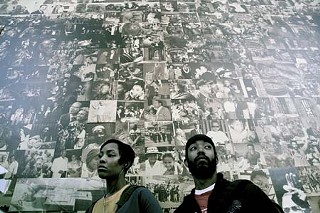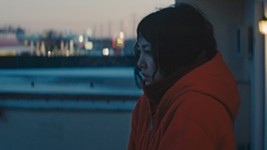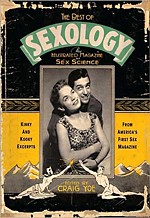Frisco Bay Blues
'Medicine for Melancholy'
By Sofia Resnick, Fri., March 7, 2008
The first in a planned trilogy about San Francisco, writer/director Barry Jenkins' first feature-length film, Medicine for Melancholy, is a love/hate story. The movie opens with Micah (Wyatt Cenac) and Joanne (Tracey Heggins), hung over, in a stranger's bathroom, brushing their teeth with their fingers. The subsequent awkward post-one-night-stand breakfast is tempered by Joanne's distress over her infidelity to her boyfriend. She's beautiful, but she's callous. She's black, as is Micah, and living in a city where African-Americans make up about 7% of the population, and a rise in gentrification is forcing out those who make less than $100,000 a year; Micah is desperate to latch onto what he thinks is the heart of his identity.
But this is not Joanne and Micah's love/hate story; their relationship barely develops into like/dislike territory. The true love/hate story is between Jenkins and San Francisco.
"The whole film is kind of a snapshot of the city," Jenkins says over the phone from his apartment, where he says he can barely afford the rent. "And I felt like it would be a shame not to make that point [about gentrification], because it's pretty much the biggest kind of political socioeconomic aspect of ... modern San Francisco – the housing crisis. Depending on where you fall in the class line, you're at the center of the crisis."
Joanne and Micah are clearly on opposite ends of this class divide: She lives in a big house owned by her white museum-curator boyfriend, while Micah, an aquarium-installer, can barely cover the rent of his tiny studio. For Joanne, race is at most an afterthought and calls Micah out on being "one of those people who think black history month is in February because it's the shortest month of the year." "It is," he says defiantly.
"I think both the characters represent different answers I have to the same question, which I can't even articulate," Jenkins says. "I guess if you're a filmmaker, and you have two different points of view on the same subject, you just put them into two different characters and have them duke it out."
And duke it out they do, during one long Sunday of museum-going, bike-riding, and an understanding that almost smells like friendship, back-dropped by moody indie-rock tunes performed by mostly Austin bands, all gathered by the film's music consultant, Austinite Gates Bradley, one-half of the music collective Super!Alright!
Jenkins deliberately intended the soundtrack, as well as the day's activities, to depict African-Americans in an unfamiliar light, filmwise. "You never see a film with two black leads that has no R&B or hip-hop," he says.
As the sun comes up at the end of the world's longest one-night stand, it's clear both Joanne and Micah have come away with some answers to the creator's query. But ultimately, Jenkins' ubiquitous question remains unresolved. "I hate San Francisco; I love San Francisco," Micah tells Joanne. "I hate San Francisco; I love San Francisco," Jenkins tells me.
Medicine for Melancholy
Narrative Feature, Emerging Visions, World PremiereSunday, March 9, 2:30pm, Alamo Ritz
Tuesday, March 11, 5pm, Alamo Ritz
Wednesday, March 12, 2:30pm, Alamo Ritz













